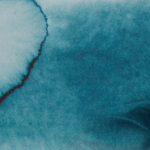Bringing local voices to the Global Partnership on Marine Litter

Photo: Naja Bertolt Jensen / Unsplash

The One Ocean Hub researchers contributed to share local experiences on the impacts of ocean plastics at an international webinar on the Global Partnership on Marine Litter focused on environmental justice on 17 February 2022 – the video-recording is available here. The webinar aimed to advance the conversation on the need for stronger action to address environmental injustices brought on by marine litter, as member states get ready to negotiate resolutions on plastics, including on the need for a new international treaty, at the UN Environment Assembly meeting in Nairobi, Kenya, from 28 February to 2 March 2022.
Following the remarks of the UN Special Rapporteur on Toxics, Marcos Orellana, on the need for a new treaty on the whole cycle of plastics, Hub Director Elisa Morgera spoke about different dimensions of environmental justice on the basis of transdisciplinary research in the Global South, which helps to:
- identify more clearly equity issues both between Global North/Global South and for most affected groups;
- prioritize critical knowledge gaps and changes in ocean and environmental governance through the application of human rights.
A 3-minute video was then showed based on research carried out by Hub researchers, Dr Georgina Oduro, Dr Bola Erinosho, Dr John Ansah and Dr Harry Golo at the University of Cape Coast in Ghana, to provide a contextual understanding of environmental injustice arising from ocean plastics in a fishing community in the Central Region of Ghana. The video included several community members who shared their views on the extent of plastic pollution on their coast, and its impacts on the community’s health, fishing and farming activities, and women. This is part of broader research conducted by Dr Oduro and colleagues on customary laws, ocean heritage and governance in Ghana.
When asked “What more can we do to raise awareness about the environmental justice when it comes to marine litter?”, Morgera recommended co-developing evidence of injustices with communities in different regions, and connecting them to specific international fora, explaining their relevance from a human rights perspective.
To that end, Hub contributions have also been captured in written evidence to the UN Special Rapporteur on Human Rights and the Environment on ‘The right to a safe, clean, healthy, and sustainable environment – Toxic-free places to live, work, study and play,’ and a previous Hub submission to the UN Special Rapporteur on Toxics and human rights on the life cycle of plastics. In addition, Hub research is now being distilled into awareness-raising materials developed in partnership with UNEP and GPML by a multi-country team composed of: Bola Erinosho (Ghana); Dylan McGarry, Anna James, Kira Erwin, Rose Boswell (South Africa); Alana Lancaster (Barbados), Elize Shakalela (Namibia); and Bhavani Narayanaswamy, Matt Upton, and Tallash Kantai (UK).
Photo: Naja Bertolt Jensen / Unsplash